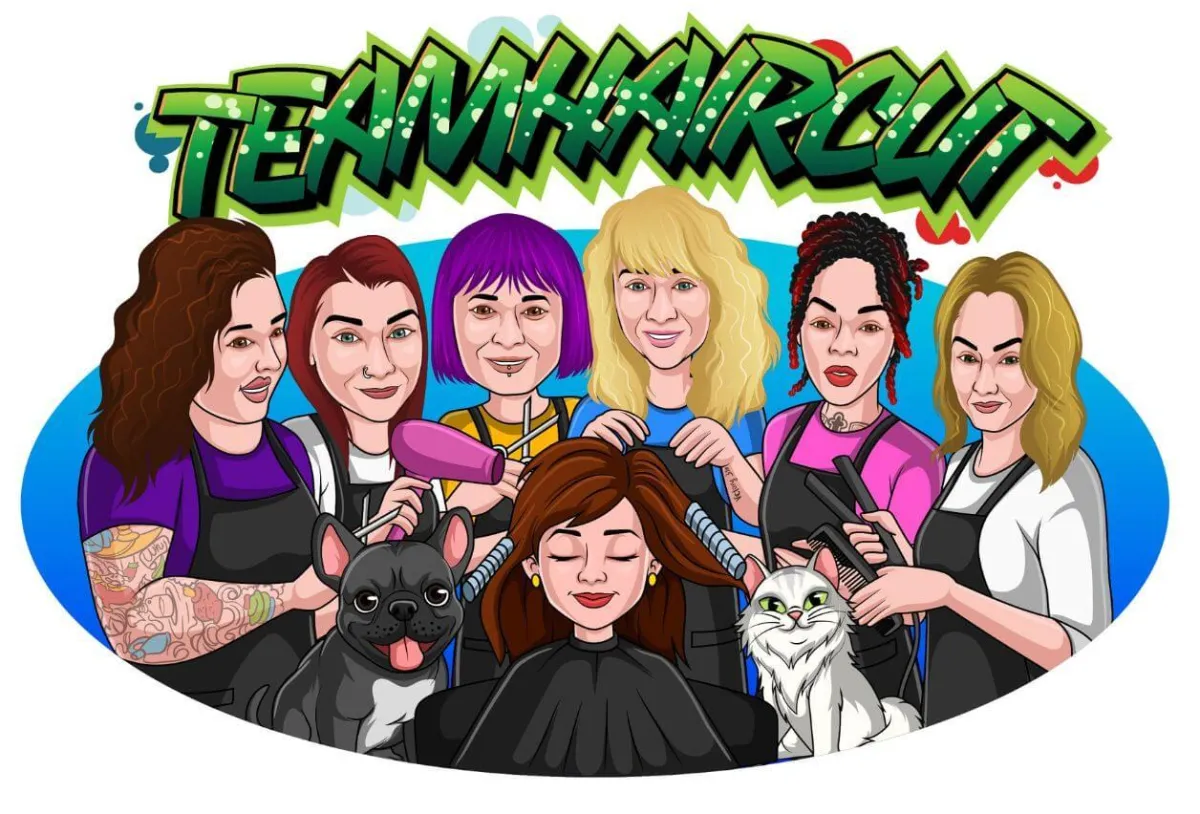
What Your Cosmetology School Didn't Teach You About Your First Job
You've mastered the perfect bob, can execute a flawless blowout, and your layering technique is getting better every day. Your cosmetology school certificate is finally in hand, and you're ready to take on the hair world! But as you start looking at job postings and scheduling interviews, you might be wondering... why does everything feel so different from what you learned in school?
Here's the thing – cosmetology school did an amazing job teaching you the technical foundations, but the real world of working as a professional stylist? Well, that's where things get interesting, and frankly, a little more complicated than your textbooks let on.
Don't worry though! We're about to spill all the secrets your instructors probably wished they could have shared but didn't have time to cover.Consider this your unofficial guide to bridging the gap between graduation and career success.
The Reality Check: School vs. Salon Life
Let's start with some truth-telling, shall we? In school, you had the luxury of time. You could spend two hours perfecting a single haircut on a mannequin, redo sections until they were just right, and ask your instructor for guidance whenever you hit a snag. Your "clients" were fellow students who were just as nervous as you were, and if something went wrong, you could always start over tomorrow.
Real salon life? Not quite the same pace! You'll have actual paying clients with real expectations, opinions, and yes, sometimes challenging personalities. That perfect cut you spent three hours on in school? You'll need to deliver similar quality in about 45 minutes while carrying on a conversation, managing your schedule, and somehow making it look effortless.
But here's what's exciting – this faster pace isn't meant to stress you out. It's actually where the real artistry happens! When you learn to work efficiently while maintaining quality, you'll discover a rhythm and flow that makes styling incredibly satisfying.
The client relationship dynamic is completely different too. In school, everyone understood you were learning. In the salon, clients are investing their time and money in your expertise. They're trusting you with something deeply personal – their appearance and confidence. This responsibility might feel overwhelming at first, but it's also what makes this career so rewarding.
Here's something else they probably didn't mention: every salon has its own culture, systems, and way of doing things. The cutting techniques you learned are universal, but how you interact with clients, manage your time, handle bookings, recommend products, and work with your team will vary dramatically depending on where you work.
The Money Talk: What to Really Expect
Let's address the elephant in the room – compensation. Your school probably gave you some general income ranges for stylists, but the reality of how you actually earn that money can be quite different from what you might expect.
Commission-based salons might sound appealing because there's potential for higher earnings, but what they don't always explain is that you're responsible for building your own clientele from scratch. This means your first few months could be financially challenging while you establish yourself. You might have days where you only do two haircuts, and other days where you're booked solid but half your appointments are no-shows.
Booth rental situations give you independence, but you're essentially running a small business. That means handling your own taxes, providing your own supplies, marketing yourself, and managing irregular income. It's definitely doable, but it requires entrepreneurial skills that weren't part of your curriculum.
Here's where employment-based salons like Teamhaircut offer something different. You receive guaranteed hourly pay plus tips, which means you know exactly what you'll earn each week regardless of how many clients you see. This financial stability allows you to focus on honing your skills and building relationships without the stress of wondering if you'll make rent this month.
The truth is, your earning potential grows with your skills and experience, regardless of which compensation structure you choose. But starting with guaranteed income can give you the breathing room to develop into the stylist you want to become without financial pressure clouding your judgment.
Choosing Your First Employer: The Decision That Changes Everything
This might be the most important career decision you'll make, and unfortunately, it's one that cosmetology school can't really prepare you for. They can teach you to cut hair, but they can't teach you how to evaluate whether a salon will support your growth or set you up for frustration.
Red flags to watch for include salons where current stylists seem stressed, unhappy, or unwilling to talk about their experience. If you visit for an interview and the energy feels tense or competitive, trust your instincts. Pay attention to how management treats current employees during your visit – that's exactly how they'll treat you.
Beware of places that promise unrealistic outcomes. If someone tells you you'll be making six figures in your first year or guarantees you'll have a full book of clients immediately, run the other way. Building a sustainable career takes time, and legitimate employers understand this.
Look for employers who invest in your development. Ask about their training programs, mentorship opportunities, and how they support new graduates. The best employers understand that your success is their success, so they'll have structured systems in place to help you grow.
At Teamhaircut, we've learned that new graduates thrive when they have consistent support, regular feedback, and a clear path for advancement. We don't throw you into the deep end and hope you figure it out – we provide the structure and guidance that helps you build confidence while developing your skills.
Pay attention to the team dynamic during your interview. Are people genuinely friendly and supportive, or does it feel like everyone's in competition with each other? You'll be spending a lot of time with these people, and a positive work environment makes an enormous difference in your job satisfaction and growth potential.
The Skills Gap: What You'll Learn on the Job
Even with excellent technical training, there are crucial skills that you can only develop through real-world experience. Time management is probably the biggest adjustment. Learning to deliver quality work within realistic time frames while maintaining your sanity takes practice and patience with yourself.
Client communication goes far beyond the consultation techniques you learned in school. You'll need to master the art of managing expectations, handling complaints gracefully, suggesting additional services without being pushy, and building genuine relationships that keep clients coming back.
Product knowledge and retail skills probably weren't emphasized much in school, but they're essential for your success and income growth. Understanding which products work best for different hair types and lifestyles, and being able to explain their benefits to clients, will set you apart from stylists who only focus on the cutting and styling.
Business awareness is another area where real-world experience teaches you things that weren't covered in your textbooks. Understanding how salons operate, what makes clients happy, how to build your reputation, and how to position yourself for advancement are all skills you'll develop on the job.
The good news is that the right employer will support you in developing these skills rather than expecting you to figure them out on your own. Look for places that offer ongoing training, mentorship programs, and clear feedback on your performance.
Building Confidence in the Real World
Here's something they definitely didn't tell you in school: it's normal to feel overwhelmed and uncertain during your first few months. Every successful stylist went through this adjustment period. The key is finding an environment where you feel supported while you build your confidence.
Imposter syndrome is real in this industry. You might look at experienced stylists and wonder if you'll ever be that skilled or confident. The secret is that everyone started exactly where you are now. Those stylists who make everything look effortless? They've been practicing for years and probably made plenty of mistakes along the way.
Mistakes will happen, and that's okay! The important thing is working somewhere that treats mistakes as learning opportunities rather than reasons for panic or punishment. When you're in a supportive environment, you can focus on growing and improving rather than hiding your inexperience.
Celebrate small victories along the way. Your first week without major mishaps, your first client who specifically requests you for their next appointment, your first successful upsell of a styling product – these moments matter and they're building blocks toward long-term success.
The Long Game: Building a Career, Not Just Finding a Job
Your first position is the foundation for everything that comes next in your career. Think beyond just "getting hired" and consider how each opportunity will help you grow into the stylist you want to become.
Consider the learning opportunities available at each potential employer. Will you have access to advanced training? Are there opportunities to specialize in areas that interest you? Can you see a clear path for advancement? These factors matter more than a slightly higher starting salary if you're thinking long-term.
Think about work-life balance and how it aligns with your personal goals. Some salons expect you to work every weekend and most evenings. Others offer more flexibility. Neither approach is right or wrong, but knowing what you want and need will help you make the best choice.
Evaluate the company culture and whether it matches your values and working style. Do you thrive in high-energy, fast-paced environments, or do you prefer a more relaxed, relationship-focused atmosphere? Both can be successful, but finding the right fit will make your workdays much more enjoyable.
At Teamhaircut, we believe your first job should set you up for long-term success rather than just getting you started. That's why we focus on creating an environment where new graduates can develop their skills, build confidence, and advance their careers at their own pace.
Your Next Steps: Making the Transition Successfully
The gap between graduation and career success doesn't have to be overwhelming. With the right expectations and the right employer, you can transition smoothly from student to professional stylist.
Be honest about your experience level during interviews. Employers who are good fits for new graduates want to know where you're starting from so they can provide appropriate support and training. Trying to oversell your experience will only set you up for stress and disappointment.
Ask thoughtful questions during the interview process. Inquire about training programs, mentorship opportunities, typical career progression, and how they support new graduates. The best employers will be excited to share this information because they're proud of how they develop talent.
Trust your instincts about the culture and environment. If something feels off during your interviews or salon visits, it probably is. You want to work somewhere that feels supportive, positive, and aligned with your values.
Remember that your first job is a launching pad, not your final destination. Focus on finding an employer who will invest in your growth and provide the foundation you need to build a successful, fulfilling career in the beauty industry.
The transition from cosmetology school to professional stylist is exciting, challenging, and full of opportunities to grow. With realistic expectations, the right employer, and a commitment to continuous learning, you'll find that the real world of styling is even more rewarding than you imagined. Your journey is just beginning, and we can't wait to see where your talent and passion take you! ✂️✨
Ready to start your styling career with an employer who truly understands the transition from school to salon? We'd love to show you how Teamhaircut supports new graduates in building successful, fulfilling careers! https://teamhaircut.com/join

